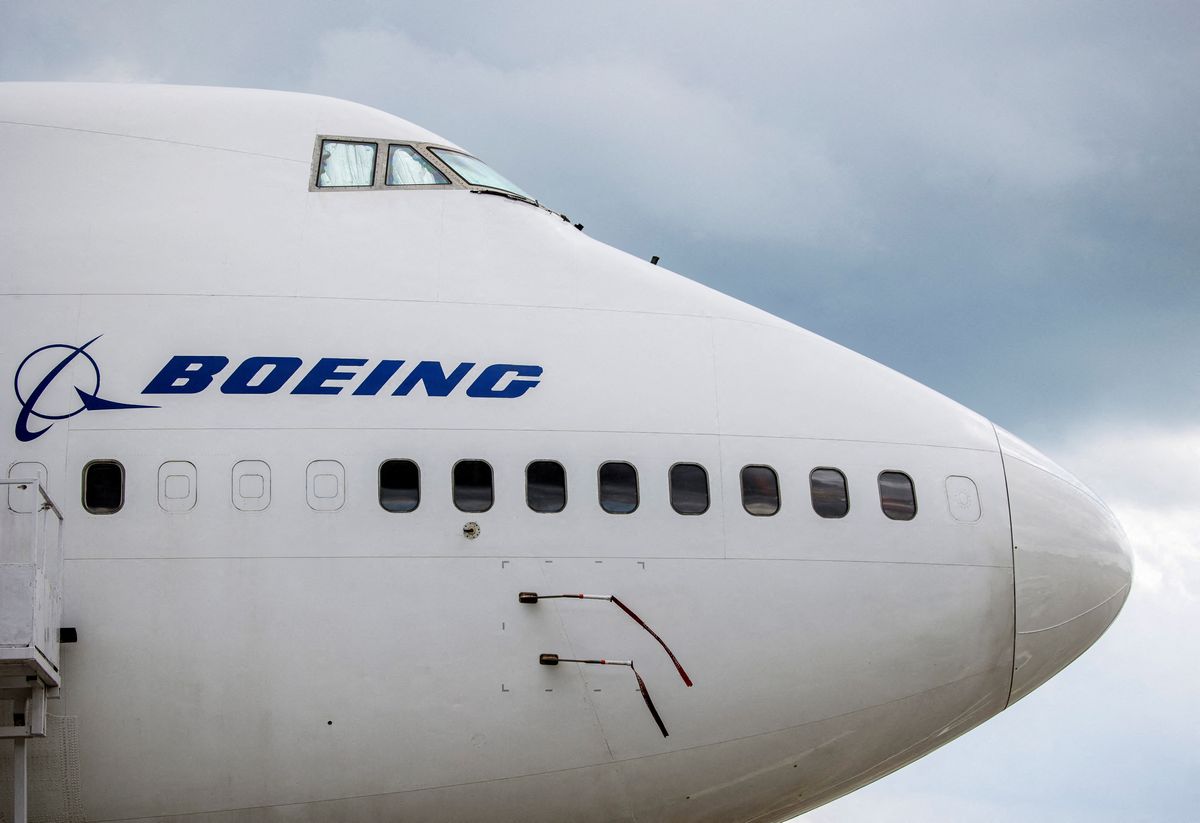How Boeing is bouncing back in China's aviation market
China is a major player in the aviation world, ranking as the world's second-largest market after the US.

A few minutes every morning is all you need.
Stay up to date on the world's Headlines and Human Stories. It's fun, it's factual, it's fluff-free.
The backstory: China is a major player in the aviation world, ranking as the world's second-largest market after the US. And when it comes to making planes, Boeing is a household name. It was a go-to choice for Chinese airlines like China Eastern, China Southern and Air China. These airlines have been flying more and more passengers, both domestically and internationally, in recent years. In fact, back in 2019, almost a third of all Boeing 737 jets sold were headed to China.
But then, things got rough for Boeing. There were two devastating accidents involving its best-selling model, the 737 Max, in 2018 and 2019. Sadly, 346 people lost their lives in those accidents. It turns out there were some design flaws in the flight control software. Beijing was quick to ground the Boeing jets after the second accident alongside other countries like the US, the UK and the EU. This was a heavy blow to the firm, especially in China, where it had a significant presence and business.
More recently: In 2021, Boeing shelled out a US$2.5 billion settlement to resolve allegations of hiding important info from regulators. But COVID had come barging in already and smacked the aviation industry hard. Travel demand plummeted, leaving airlines with no choice but to ground and store their planes. It was like a ghost town up in the sky during the pandemic. Plus, while China had technically approved Boeing’s Max to resume flying in late 2021, most Chinese airlines weren’t putting the Max back in the sky or taking any Boeing deliveries.
Over the last four years, rival European company Airbus has been in the lead for plane sales to China. Last year, it sold more than 100 jets to the country, while Boeing, on the other hand, only delivered eight. Last July, Airbus struck a deal worth US$37 billion by selling 292 planes to Chinese airlines. US-based Boeing, on the other hand, said "geopolitical differences" were a factor in the company's sluggish sales in China.
Now, with China easing up on COVID restrictions, people are itching to travel again, and that means airlines need more planes and demand is going through the roof.
The development: Boeing is finally making a comeback after the challenges with its 737 Max planes. In January, the 737 Max finally made its first passenger flight in China again after nearly four years. This is a big chance for Boeing to regain its position in the world's second-largest aviation market.
But China has its own player in the aviation game – Commercial Aircraft Corp of China (COMAC). The manufacturer introduced its first big passenger jet, the C919, and just made its debut last month. Even though COMAC is making quite a splash, it’s a pretty new company and still has some catching up to do before it can really compete with Boeing.
The thing is, both Boeing and Airbus have backlogs of orders stretching out to the end of the decade with international travel getting back to business as usual. So, Chinese airlines will likely have to order more Boeing planes, including the 737 Max, to keep up with the increasing demand for seats. According to Boeing CEO Dave Calhoun, the company feels pretty confident about its position in China. The aviation giant also has big plans to ramp up production for the 737 Max.
Key comments:
"Boeing continues to work with global regulators and customers to safely return the 737 MAX to service worldwide," said Boeing in January.
“As a top US exporter with a 50-year relationship with China’s aviation industry, it is disappointing that geopolitical differences continue to constrain US aircraft exports,” said a Boeing spokesperson last July in a statement.
“We continue to urge a productive dialogue between the governments given the mutual economic benefits of a thriving aviation industry,” said a Boeing spokesperson last July. “Boeing aircraft sales to China historically support tens of thousands of American jobs, and we are hopeful orders and deliveries will resume promptly.”
“This is China sending a sign, and it hurts Boeing terribly,” said George Ferguson, an analyst with Bloomberg Intelligence, referring to the Airbus US$37 million deal for Chinese airliners last year.
“The Chinese are preparing for a comeback just like you’re seeing in the rest of the world, and it’s pretty clear the US is at a disadvantage,” said Richard Aboulafia, an analyst with AeroDynamic Advisory.
“Airbus has long had a stronghold in China when it comes to short-haul aircraft and they also have a plant there, so they have a strong mix of production and sales,” said John Strickland, an aviation analyst at JLS Consulting.




Comments ()